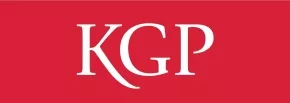- within Technology topic(s)
- in United States
- within Technology topic(s)
- in United States
- within Technology topic(s)
Understanding the Regulatory Framework
Singapore does not have a single regulatory regime governing digital assets; rather, regulations depend on the nature of the assets and activities involved. Businesses looking to operate in the digital asset space must comply with the following laws:
- Payment Services Act (PSA)which regulates cryptocurrency-related activities, particularly Digital Payment Tokens (DPTs).
- Securities and Futures Act (SFA)which is responsible for governing digital tokens that qualify as "securities" or "capital markets products."
- Financial Services and Markets Act (FSMA)which provides additional oversight for digital token services.
- Anti-Money Laundering (AML) and Combating the Financing of Terrorism (CFT) laws
Key Licensing and Compliance Requirements
- Digital Payment Token (DPT) Service Providers
Entities engaged in trading, exchanging, or custody of DPTs must obtain a license under the PSA. This requires a minimum base capital of SGD $250,000 and strict AML and CFT compliance measures.
- Capital Markets Services License
If a digital asset is classified as a "security" or "capital markets product," businesses must obtain a Capital Markets Services (CMS) license from the Monetary Authority of Singapore (MAS). Compliance with MAS guidelines on prospectus requirements and registration obligations for public offerings is key.
Key Blockchain Regulation Considerations
- For Token Issuers
To determine if the token qualifies as a:
- "Security" under the SFA, requiring a prospectus and compliance with capital market regulations.
- "Digital payment token" under the PSA, requiring licensing for services involving such tokens.
- "Digital token" under the FSMA, imposing compliance obligations for companies operating in Singapore.
- For Blockchain Developers
Ensure AML/CFT compliance and consider regulatory exemptions for private blockchain tokens used between private parties.
Consumer Protection and Regulatory Oversight
MAS has introduced new safeguards to protect retail investors like restrictions on advertising cryptocurrency services to the general public, mandatory segregation of customer assets from company funds, and potential future restrictions on using credit cards for cryptocurrency purchases.
Smart Contracts and Legal Considerations
While Singapore lacks specific legislation for smart contracts, legal validity depends on offer and acceptance mechanisms, consideration and intent to create legal relations, as well as enforceability in case of disputes, fraud, or errors.
Intellectual Property and Data Protection
Blockchain technology presents both challenges and opportunities for intellectual property (IP) protection and data privacy. Compliance with Singapore's Personal Data Protection Act (PDPA), and ensuring proper licensing and copyright protection are some key considerations.
Future Outlook and Conclusion
Singapore remains a global leader in digital asset regulation, with ongoing initiatives like:
- MAS' Singapore Blockchain Innovation Programme: Supporting blockchain research and adoption.
- Project Ubin+: Exploring central bank digital currencies (CBDCs) for international settlements.
- Stablecoin Regulations which provide a licensed framework for stablecoin issuance and asset protection.
By ensuring compliance with existing regulations and adopting best management practices, businesses can successfully establish a digital asset ecosystem in Singapore.
References
- https://www.osborneclarke.com/insights/singapores-regulators-set-pace-blockchain-and-fintech-ecosystem-advances
- https://www.ifcreview.com/articles/2024/may/singapore-digital-assets-regulation-state-of-play/
The content of this article is intended to provide a general guide to the subject matter. Specialist advice should be sought about your specific circumstances.


